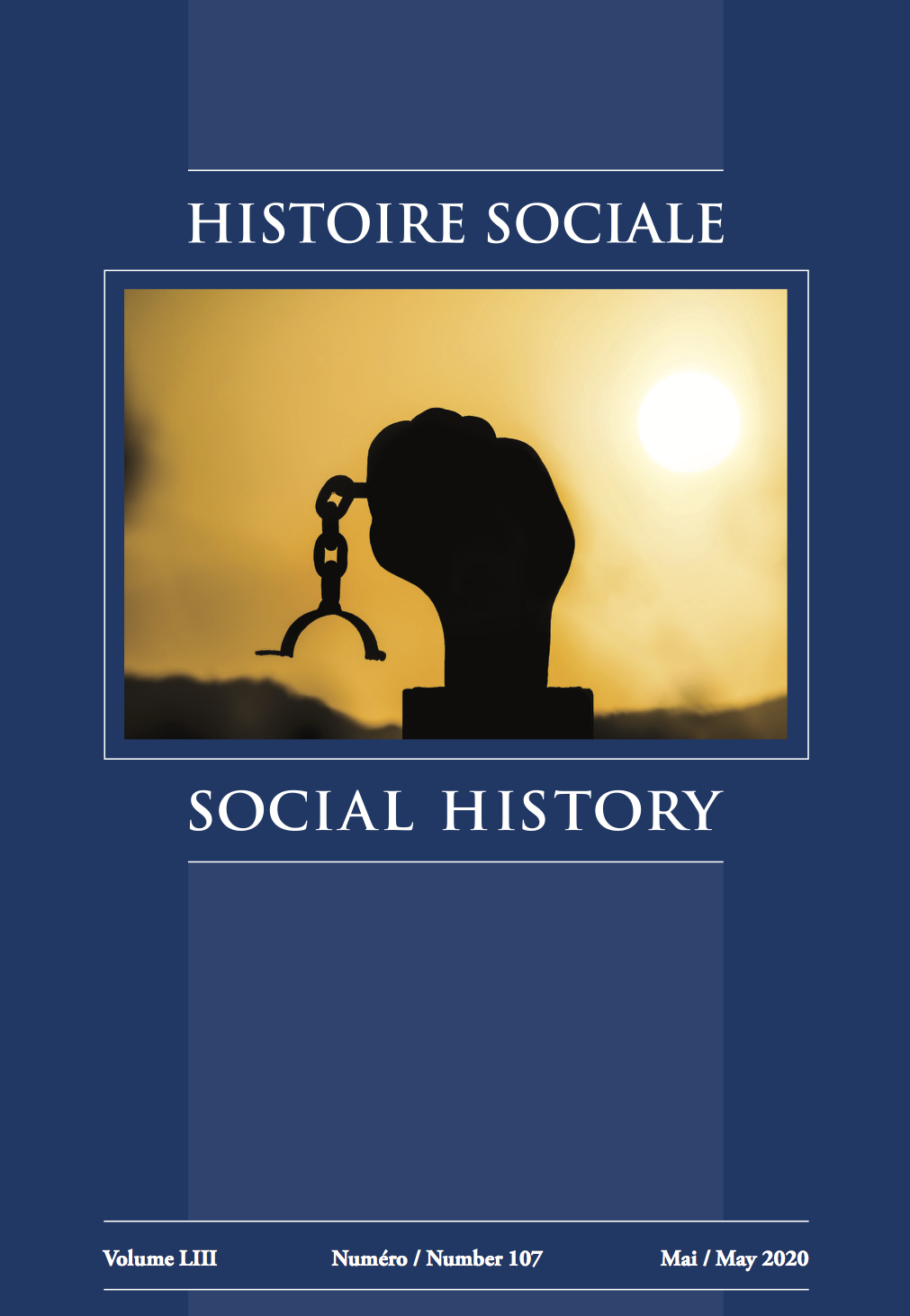Beyond the Dark Side of the Port of the Moon: Rethinking the Role of Bordeaux’s Slave Trade Past
DOI:
https://doi.org/10.1353/his.2020.0003Abstract
Bordeaux is increasingly recognized as a “slave-trading port” (port négrier) that was built upon the wealth of merchants who shipped enslaved people and the fruits of enslaved labour. This article focuses on the enslaved and free women, men, and children whose multidirectional travel has also shaped the city since the eighteenth century. During the height of the eighteenth-century trade, some people of colour had the opportunity to redefine themselves in the city. After the slave trade ended and an era of colonialism in Africa began, others who gathered in the city had new opportunities to imagine a “Black metropolis.” Pushing beyond current, crucial efforts to recognize the role of the slave trade and slavery in France, this article theorizes ways to reconstruct the lives of people of colour and their historical communities in key European port cities like Bordeaux.


